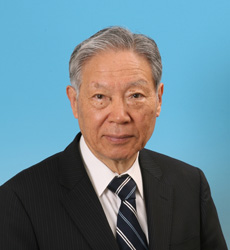



A broad view of nuclear power use in our current world reveals the inevitable deferment of decommissioning plans in France, contradiction Korea has in terms of its domestic and external nuclear plan as well as similar anomalies gradually coming to light as a result of pressure to abandon nuclear power plants as expeditiously as possible and shift toward renewable energy, which is a consequence of the Fukushima Daiichi accident. Be that as it may, newly emerging nations such as China, India are increasingly using and turning toward nuclear power, a development anticipated as a fundamental and realistic response by these nations to ensure their energy supplies from the standpoint of future economic development, population increase, and global environmental conservation.
Meanwhile, in Japan, the nuclear power business has made a few incremental advances toward restarting nuclear power plants. This movement is expected to continue, and greater demand is anticipated for the establishment of safe and reliable operation, which will likewise provide a foundation for realizing this anticipated trend.
In such a context, as Japan’s nuclear operators continue to endeavor to improve the safety performance of nuclear power plant operation and further support the restarting of nuclear power plants in Japan, they will be called on to facilitate the completion of preparations for transitioning to the new regulatory system, which the Nuclear Regulation Authority has been setting forth.
Currently, efforts are underway to introduce this new regulatory framework. However, in its actual adoption, Japanese society must continuously evaluate, even after enactment, whether or not the actual regulatory framework truly contributes to the scientificness and effectiveness that has been originally sought, and create a mechanism to make sustainable improvements. As Japanese society continues to closely examine precedents available from the United States which has preceded Japan in such respects, I believe that Japanese society will be able to achieve its anticipated objective only through steady and meticulous preparation.
In collaboration with operators, JANSI will establish a framework for operators enabling them to meet their commitment to voluntarily improving safety within the new regulatory framework, and we will promote the development of a safety management system forming the foundation of the new regulatory framework, which comprises “corrective action”, “configuration management” and “performance index management”.
JANSI was founded on the model of INPO in the United States in accordance with the commitment made by Japan’s nuclear operators to “never ever allow a severe accident like the Fukushima Daiichi accident to happen again and to achieve that goal by never believing that safety has been perfected just through the satisfaction of regulatory requirements and by constantly endeavoring in our search for goal of world-class excellence.” It is the mission and vision of JANSI to propel operators to implement their commitment.
While maintaining close communication with operators, JANSI will steadily pursue its current basic business activities, which include, integrated assessments for safety operations at nuclear power plants, conduct peer reviews of power plants, make proposals to improve safety, among other programs, assistance for operators.
At the same time, we will strive to constantly verify and strengthen, across-the-board, our own organization to be the epitome of what a self-regulating organization should be, and aspire to improve the oversight and governance that we provide as a self-regulating organization through enhancement of leadership at all levels within JANSI.
In the future as well, this will improve JANSI, better define the excellence which is our goal for nuclear safety, and be the driving force that works operators to unceasingly pursue this level of excellence.
We appreciate your continued support and advice.
Shojiro Matsuura
President & CEO
Japan Nuclear Safety Institute